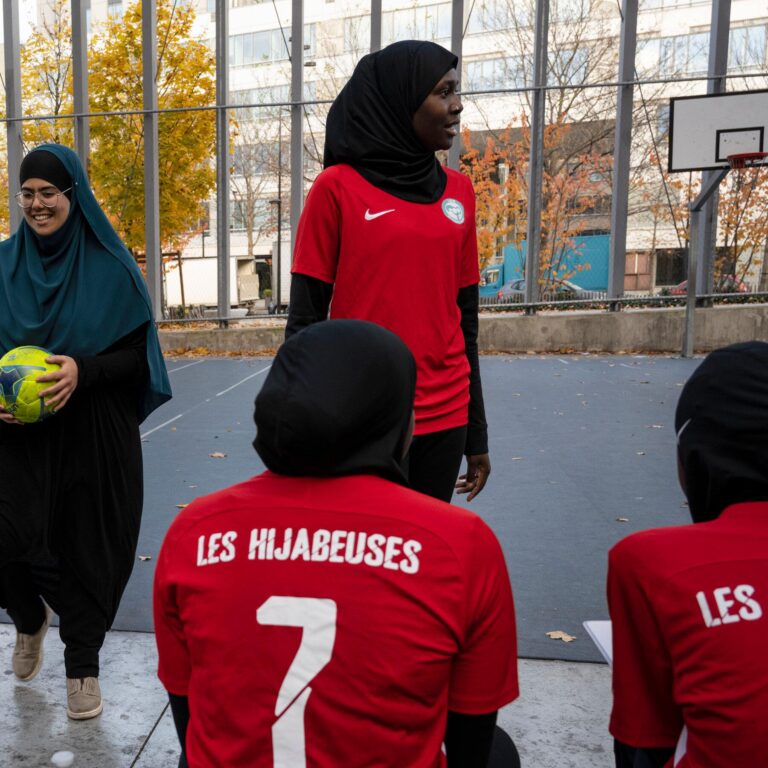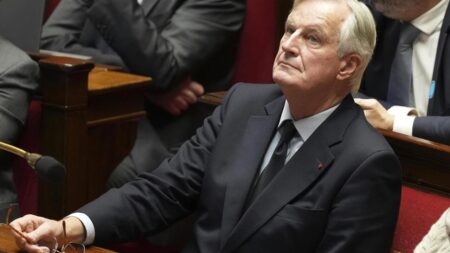France’s Senate has overwhelmingly backed a controversial bill seeking to ban the wearing of Muslim headscarves in sport competitions, igniting heated debates over religious freedom and secularism. The legislation, which aims to reinforce France’s staunch secular values, specifically targets visibly religious symbols during athletic events, a move critics argue disproportionately affects Muslim women. This development marks a significant step in the ongoing national discourse surrounding the balance between personal liberties and state-imposed secularism.
France’s Senate Advances Controversial Ban on Muslim Headscarves in Sports
The French Senate has moved forward with a highly contested bill that aims to prohibit the wearing of Muslim headscarves during sports competitions. Proponents argue that the legislation is intended to uphold secularism and neutrality in public sporting events, emphasizing the nation’s commitment to la√Įcit√©. Critics, however, warn that this measure could marginalize Muslim athletes and restrict personal freedoms, sparking debates about religious expression and equality in sports across the country.
Key points surrounding the legislation include:
- Scope of the ban: Applies specifically to school and professional sports competitions.
- Government rationale: Protecting secular values and preventing religious symbols from entering public spheres.
- Opposition concerns: Potential discrimination and impact on female athletes who wear headscarves.
- Implementation challenges: Enforcing the ban without infringing on individual rights remains a critical issue.
| Aspect | Supporters’ View | Opponents’ View |
|---|---|---|
| Religious freedom | Secularism protects public neutrality | Restricts individual expression |
| Impact on athletes | Ensures equality in competition | Excludes minority athletes |
| Legal challenges | Legitimate under French law | May violate human rights |
Debate Over Secularism and Religious Freedom Intensifies Across the Nation
The recent vote by France’s Senate to ban the Muslim headscarf in sport competitions has reignited a fervent national debate that touches on the complex balance between secularism and religious freedoms. Advocates of the bill argue that such a measure is essential to uphold the principles of la√Įcit√©, a cornerstone of French identity that emphasizes the separation of religion from public life. Supporters claim that banning the headscarf in sports arenas preserves neutrality and fairness, ensuring that no religious symbolism interrupts the spirit of competition. The bill‚Äôs passage in the upper house reflects growing political momentum to enforce stricter secularist policies across various public domains.
Critics, however, denounce the legislation as discriminatory, highlighting that it disproportionately targets Muslim women and infringes upon individual rights. They underscore concerns about exclusion, pointing out that:
- Religious expression is a fundamental freedom enshrined in international human rights charters.
- The ban may lead to reduced participation of Muslim athletes in sports, undermining inclusivity and diversity.
- It risks fostering social divisions rather than promoting cohesion.
| Aspect | Supporters’ View | Opponents’ View |
|---|---|---|
| Core Principle | Secularism in public spaces | Freedom of religious expression |
| Impact on Athletes | Ensures neutrality | Potential exclusion of Muslim women |
| Social Implication | Protects public order | May deepen societal divides |
Impact on Muslim Athletes Raises Concerns Among Human Rights Groups
Human rights organizations have expressed deep concerns over the potential consequences this legislative move could have on Muslim athletes across France. Advocates argue that the prohibition disproportionately targets a specific religious community, potentially infringing on freedoms of expression and religion enshrined in national and international human rights laws. Many contend that such a law could lead to the exclusion of Muslim women from competitive sports, limiting their participation and representation on both national and global stages.
Critics also highlight the risk of increased stigmatization and social marginalization faced by Muslim athletes, who may feel forced to choose between their religious beliefs and their athletic careers. Some human rights groups have called for the government to consider alternative measures that promote inclusivity without compromising personal liberties. The concerns raised are summarized below:
- Restriction of religious freedoms: Potential violation of constitutional rights.
- Exclusion from sports: Muslim athletes may be barred from competition.
- Social impact: Heightened discrimination and isolation within sporting communities.
- International image: Possible backlash affecting France’s standing in global human rights discussions.
Calls for Dialogue and Balanced Policies to Protect Inclusivity in Sports
Amidst the ongoing debate on the ban of Muslim headscarves in sport competitions, various stakeholders urge for constructive dialogue to ensure the preservation of inclusivity in athletics. Advocacy groups and sports organizations alike emphasize the importance of accommodating religious expressions without compromising the integrity of fair play and safety on the field. They argue that open conversations between policymakers, athletes, and community representatives are essential to forge solutions that respect diversity while upholding universal sporting principles.
Experts suggest a balanced approach could better address concerns rather than blanket prohibitions. Potential measures include:
- Designing sportswear that safely incorporates religious attire
- Implementing clear, consistent guidelines that avoid discrimination
- Encouraging education programs that promote tolerance and cultural awareness
Below is a comparison of the possible impacts of the ban versus inclusive policy frameworks:
| Aspect | Strict Ban | Inclusive Policy |
|---|---|---|
| Inclusivity | Significant reduction | Enhanced diversity |
| Safety | High certainty | Condition-based adaptations |
| Public Reception | Divisive and polarizing | Generally supportive |
| Legal Challenges | Increased risks | Lower risk, more clarity |
To Wrap It Up
The Senate’s backing of the bill to ban the Muslim headscarf in sports competitions marks a significant development in France’s ongoing debate over secularism and religious symbols in public life. As the measure moves forward, it is expected to face further scrutiny and debate in the National Assembly. The legislation underscores the enduring tensions in French society over issues of identity, religious freedom, and the place of visible faith in public spaces. Observers will be closely watching how this contentious bill shapes the country’s legislative and social landscape in the coming months.




